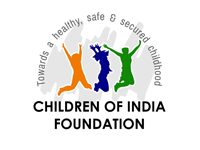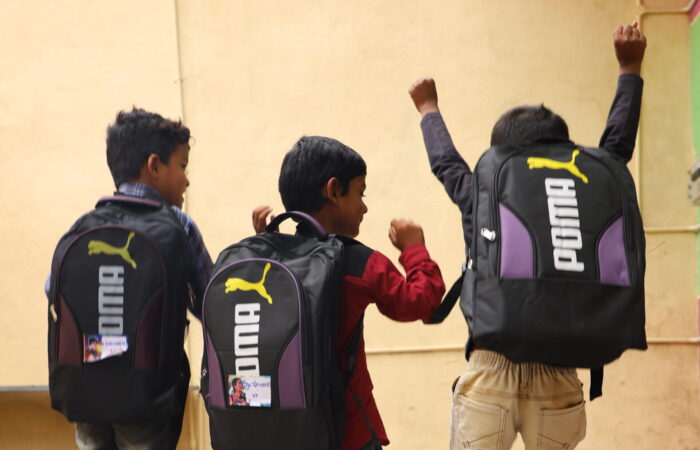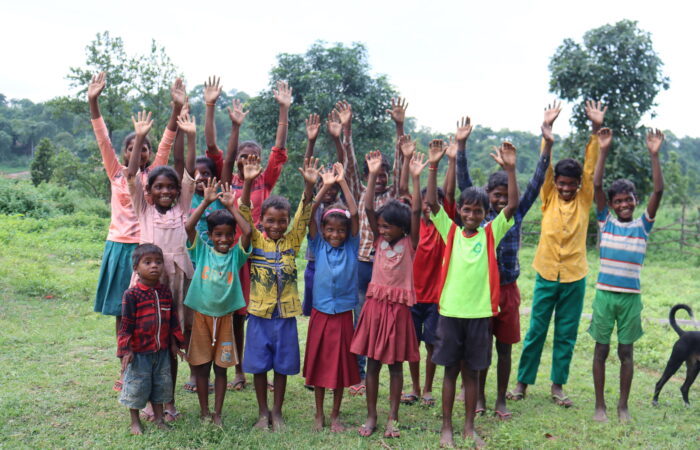On February 23, 2024, Children of India Foundation (CIF) organised the ‘Voices for Change: Child Advocacy Communication Workshop’ at Hotel Tara Tower, Koderma, Jharkhand. This workshop, aimed to train children from our Mica Project tv ineffectively communicating their issues to government officials and advocate for change regarding child rights in their villages.
The workshop, conducted by Vaishnavi Gupta, Senior Communications Associate, focused on improving communication skills of 63 participants, 44 children and 19 staff members, from the various Balmanch (children’s club in each village) through engaging and interactive sessions.
The workshop was divided into three main sections.
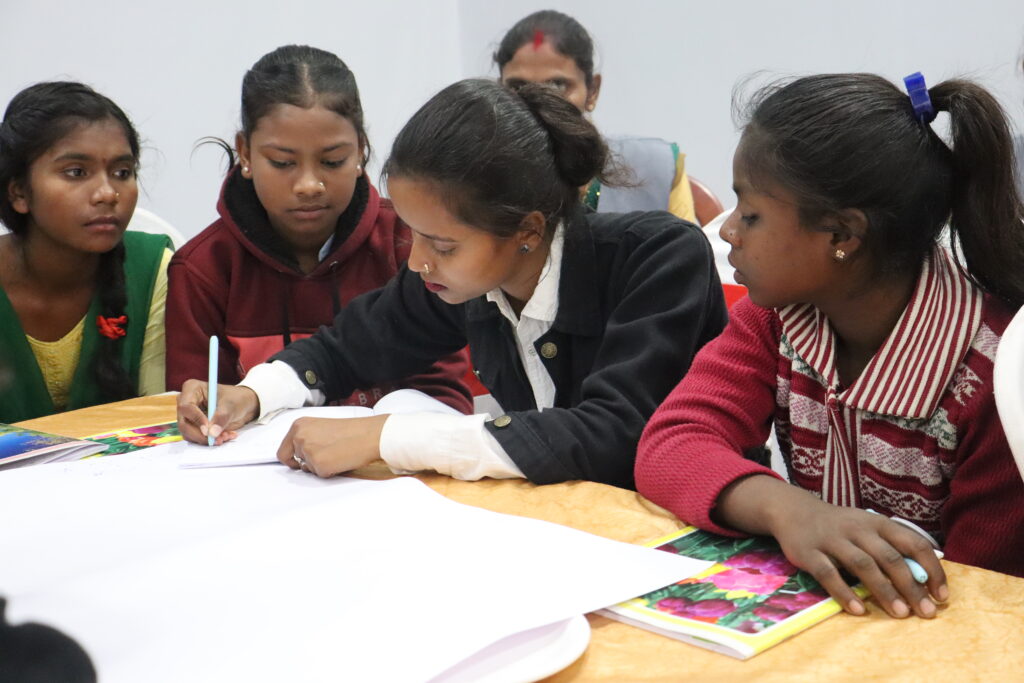
Icebreaker and Basics
The session began with an icebreaker activity where children were asked to introduce themselves as an animal that has similarities between their personalities. Some children chose to be a dog highlighting faithfulness as the common characteristic while some chose to be a wolf drawing resemblance to fierceness. Post the fun-filled icebreaker, the children were given a brief introduction on the basics of effective communication and its role in advocacy for child rights.
Reading and Writing Skills
The next session began with the children being introduced in depth to the first horizontal on communications, i.e reading. They learnt about the importance of reading in effectively communicating while also participating in analysing news articles and sample letters. They were further trained on writing skills in the preceding session. The children were taught how to write various collaterals like posters, notices and letters. A huge focus was on writing letters since the Balmanch children write letters to the government officials to bring to their notice any challenges in their respective villages. This was followed by guided practice where children were divided into groups of 6 and were encouraged toto draft letters addressed to government officials on specific issues like child marriage, child labour and Anganwadi amenities. This session emphasised the importance of understanding child rights and researching issues to effectively document violations and concerns.
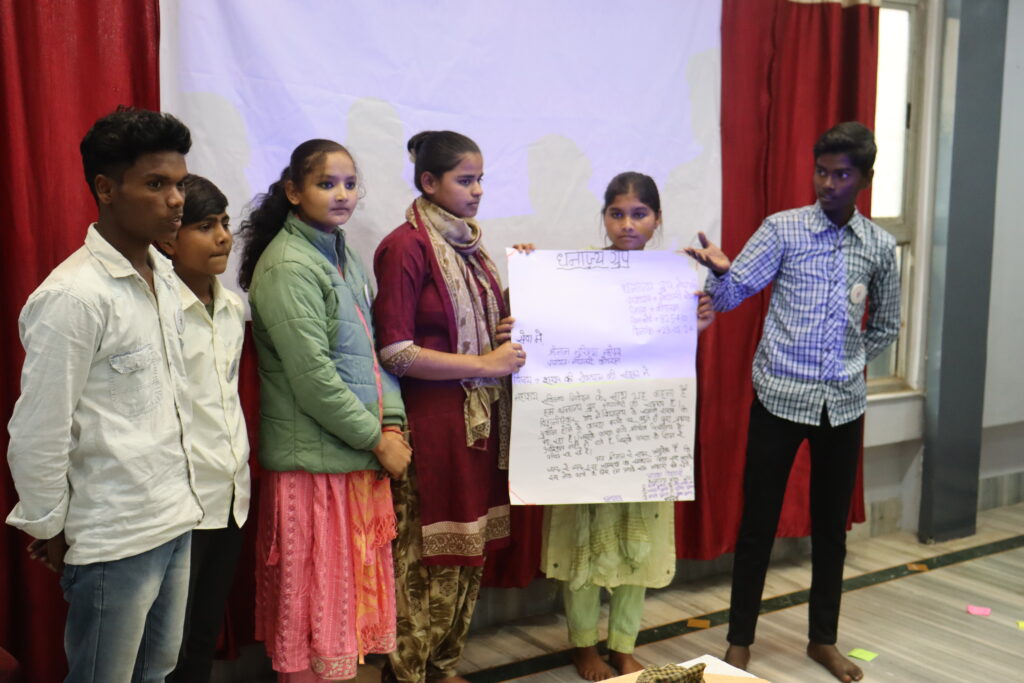
The workshop included two group activities aimed at enhancing communication skills among participants.
In the first activity, children were divided into groups of 5-6 members each and tasked with addressing village issues by drafting letters to the village chief. Using the insights gained from the reading session and the writing format discussed during the writing session, they collaborated to articulate their concerns effectively. Each group then reviewed and provided feedback on other groups’ work, ensuring a comprehensive understanding of writing styles and content structure.
Speaking and Presentation Skills
Following a lunch break, the workshop further delved into presentation techniques, such as structuring presentations, voice modulation, and body language. Children prepared and delivered short speeches on their identified issues, receiving feedback on their delivery and engagement techniques.
This was followed by another group activity focusing on speaking and presentation by the children groups. Children were tasked with orally presenting the letters they had written earlier, simulating interactions with village officials in a mock scenario. Through role-play, participants assumed various roles, such as village chief, ward members, Balmanch leaders and conveyed their concerns persuasively. The other groups provided feedback on elements such as body language, tone variation, and confidence levels, enhancing their presentation skills.
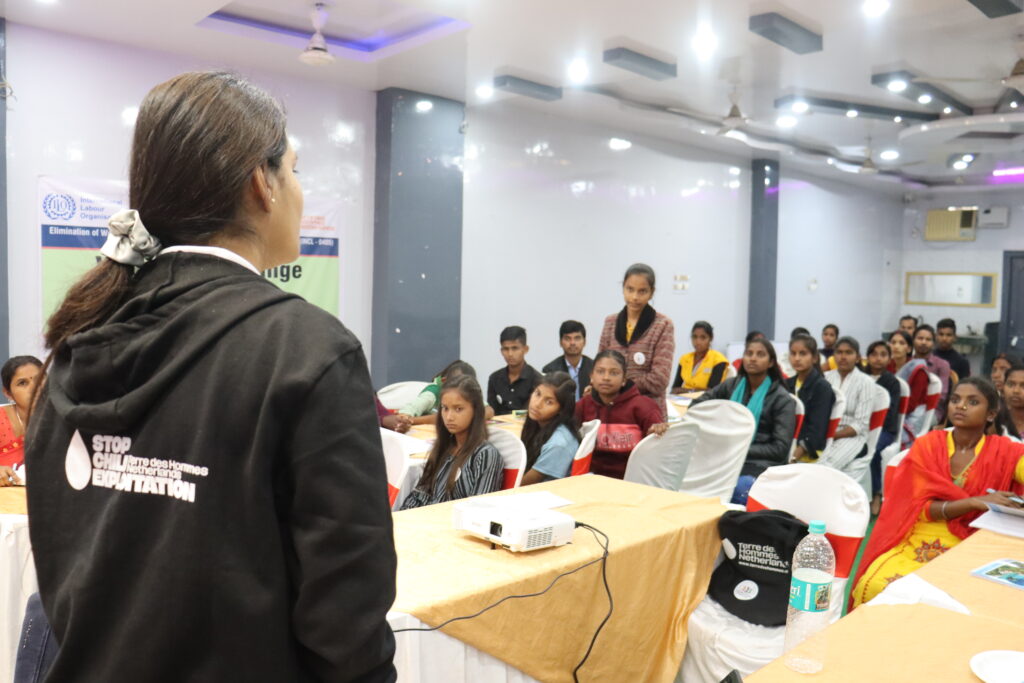
The day concluded with a photo session, fostering a sense of accomplishment among the children.
The workshop highlighted the importance of communication in advocating for rights, including raising awareness, building relationships, influencing decision-making, and mobilising action. It emphasised the role of reading, writing, speaking, and presenting skills in understanding, documenting, and addressing child rights issues effectively.
Children were encouraged to apply their newfound communication skills in their bi-monthly group meetings, fostering a culture of advocacy and empowerment within their communities.
By amplifying their voices, CIF continues its mission to combat child labour and promote education and child welfare in the Mica-dependent districts of Jharkhand.
Tisha Ahuja
(Communications Intern, CIF)
